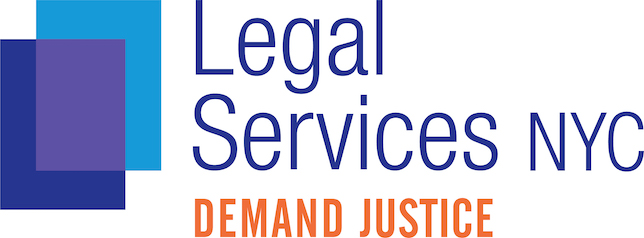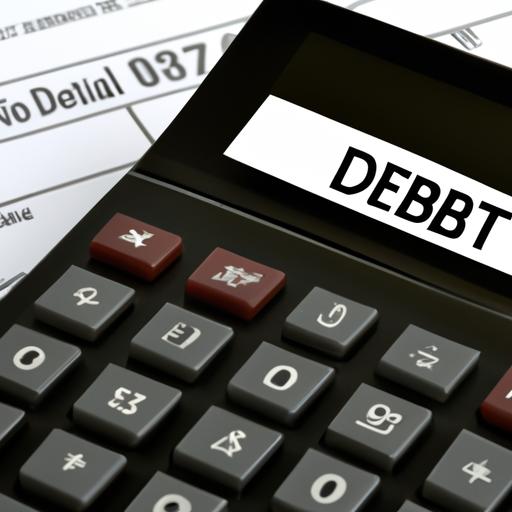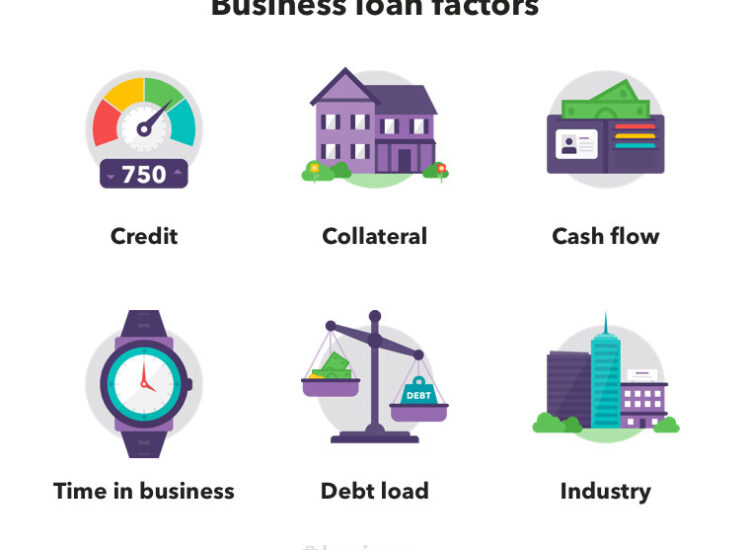A no appraisal home equity loan offers homeowners a streamlined way to access funds for renovations or improvements without the lengthy appraisal process that traditional loans require. This financing option can be especially appealing for those who need to act quickly, but it also presents certain risks related to property valuation and borrowing capacity. In this comprehensive guide, we will explore the intricacies of no appraisal home equity loans, including their benefits, drawbacks, how to find the right lender, alternatives, and practical tips for securing the best deal.
Toc
- 1. Understanding No Appraisal Home Equity Loans
- 2. Pros and Cons of No Appraisal Home Equity Loans
- 3. Finding the Right Lender for Your No Appraisal Home Equity Loan
- 4. Related articles 01:
- 5. Alternatives to No Appraisal Home Equity Loans
- 6. Current Trends in No Appraisal Home Equity Loans
- 7. When a Full Appraisal Might Be Necessary
- 8. Related articles 02:
- 9. Securing a Favorable No Appraisal Home Equity Loan
- 10. Conclusion
Understanding No Appraisal Home Equity Loans

A no appraisal home equity loan allows homeowners to leverage their property’s value without undergoing a formal appraisal. This process can be time-consuming and costly, which is why many borrowers find this option attractive when seeking to fund home renovations or improvements promptly.
What is Home Equity?
Home equity is the portion of your property that you own outright, calculated as the difference between your home’s current market value and the remaining balance on your mortgage. For example, if your home is valued at $300,000 and you owe $200,000 on your mortgage, your home equity stands at $100,000. Homeowners can tap into this equity through various loan options, including a no appraisal home equity loan.
The Traditional Role of Appraisals
In conventional home equity loans, appraisals are a standard requirement. Lenders use these assessments to determine the current market value of a property, considering various factors like its condition, location, and recent sales of comparable properties. However, this appraisal process can introduce delays in loan approval, which can be problematic for homeowners needing quick access to funds.
How No Appraisal Loans Work
No appraisal home equity loans simplify the borrowing process by allowing lenders to use alternative methods to assess property value. These methods may include automated valuation models (AVMs), existing tax assessments, or recent purchase prices. While this approach expedites the loan process, it can sometimes result in lower loan amounts due to less comprehensive evaluations.
Limitations of No Appraisal Loans
While no appraisal home equity loans offer speed and reduced closing costs, they come with certain drawbacks. Borrowers may face higher interest rates due to the increased risk lenders take when bypassing a formal appraisal. Additionally, the loan amounts may be lower than what one might qualify for with a traditional appraisal, potentially limiting renovation budgets.
Pros and Cons of No Appraisal Home Equity Loans
Advantages
- Faster Closing Times: One of the most significant benefits of a no appraisal home equity loan is the reduced time frame for closing. Without the need for an appraisal, you can access funds more quickly, which is crucial for urgent renovations. However, it’s important to note that the overall closing time still depends on other factors such as lender processing speed, document verification, and title searches. A no appraisal loan might skip the typical 2-3 week appraisal delay, but total closing time could still range from a few days to several weeks. For instance, a lender might process a loan in as little as 7-10 business days even without an appraisal.
- Lower Closing Costs: By eliminating appraisal fees, homeowners can save money upfront. This can be particularly beneficial for those on tight budgets. However, it’s important to consider that while appraisal fees are avoided, other fees might be higher to offset the lender’s increased risk.
- Simpler Application Process: The streamlined process often translates to fewer documents and a more straightforward application, making it easier for borrowers to navigate the loan process.
- Access to Funds for Immediate Needs: If you encounter unexpected repairs or emergencies, a no appraisal home equity loan can provide the funds you need without the lengthy waiting period associated with traditional loans.
- Potential for Increased Home Value: By using the funds from a no appraisal home equity loan for renovations, you may increase your home’s value, potentially leading to a better return on investment when you decide to sell.
Disadvantages
- Higher Interest Rates: Due to the lack of a precise property valuation, lenders may charge higher interest rates to mitigate risk. This increased risk isn’t solely about valuation uncertainty; there’s also the potential for increased default risk associated with overleveraged borrowers. Lenders might rely more heavily on credit scores and debt-to-income ratios to compensate for the absence of appraisal data. For instance, a study by the Consumer Financial Protection Bureau found that lenders tend to adjust their risk assessment models when appraisals are not part of the equation.
- Potentially Lower Loan Amounts: Without an accurate appraisal, lenders might limit the amount they are willing to lend, which can restrict the scope of your home improvement projects.
- Stricter Lending Criteria: Some lenders may impose stricter requirements for approval, especially if the property is considered high-risk. This trend has been observed as many lenders have become more risk-averse in recent years due to economic uncertainties, potentially leading to stricter lending criteria even for borrowers with good credit scores.
- Less Accurate Valuation: Since no formal appraisal is conducted, the valuation of your home may not accurately reflect its current market value, potentially limiting your borrowing capacity.
- Increased Risk for Borrowers: The absence of an appraisal can lead to situations where borrowers take on more debt than their home is worth, particularly in fluctuating markets.
Finding the Right Lender for Your No Appraisal Home Equity Loan
When considering a no appraisal home equity loan, finding the right lender is crucial. Here are some strategies to identify suitable lenders and compare loan offers.
Identifying No Appraisal Home Equity Loan Lenders
To find lenders offering no appraisal home equity loans, start with online searches using phrases like “no appraisal home equity loan California.” This will help you discover regional options that suit your needs. Additionally, local banks and credit unions may provide competitive offers, so it’s worth exploring those avenues as well.
Due Diligence
Before proceeding with a lender, it’s essential to conduct thorough research. Check the lender’s licensing and reputation to ensure they comply with all relevant consumer protection laws, such as state regulations for mortgage lending. Be cautious of predatory lending practices, which often target borrowers seeking quick loans.
Comparing Loan Offers
When evaluating potential loan offers, focus on critical factors such as interest rates, fees, terms, and loan-to-value ratios. Each lender may present different terms, so it’s essential to ensure you’re receiving the best deal. Utilize a no appraisal home equity loan calculator to estimate your monthly payments based on various loan amounts and interest rates.
Leveraging Online Resources
Online platforms like Reddit can provide insights into borrower experiences with various lenders. Searching for “no appraisal home equity loan Reddit” can reveal firsthand accounts that may help inform your decision. Additionally, consider using loan comparison websites to assess multiple offers at once.
Understanding the Impact of Your Credit Score
Your credit score significantly influences the terms of your loan. A higher credit score typically leads to more favorable rates. If your credit score is less than ideal, it’s beneficial to research options for “no appraisal home equity loan bad credit.” Some lenders specialize in working with borrowers who have lower credit scores.
Seeking Recommendations
Ask friends, family, or colleagues who have taken out a no appraisal home equity loan for recommendations. Personal referrals can provide insights into reputable lenders and their customer service.
Alternatives to No Appraisal Home Equity Loans
If a no appraisal home equity loan does not align with your needs, several alternatives can provide the necessary financing for home improvements.
Home Equity Line of Credit (HELOC)
A HELOC offers flexibility by allowing homeowners to access their equity as needed, similar to a credit card. Some lenders may provide a “fast HELOC no appraisal” option, making it a quick way to secure funds for renovations. Unlike traditional home equity loans, HELOCs typically have variable interest rates and allow for repeated borrowing without reapplying.
- Pros of HELOCs: Flexibility to borrow as needed, lower initial interest rates, and interest-only payment options during the draw period.
- Cons of HELOCs: Variable interest rates can lead to fluctuating payments, and failure to make payments can result in foreclosure.
Cash-Out Refinancing
Cash-out refinancing involves taking out a new mortgage for more than the amount owed on your current mortgage, allowing you to access the difference in cash. While this option may require a full appraisal, it can provide access to a larger sum of money. However, with current high mortgage rates, this may not always be the most cost-effective choice.
- Pros of Cash-Out Refinancing: Potentially lower interest rates than personal loans, access to a larger amount of cash, and the ability to consolidate debt.
- Cons of Cash-Out Refinancing: Higher closing costs, longer processing times, and the need for a full appraisal.
Personal Loans
For smaller renovation projects, personal loans can be a viable alternative. Although these loans often come with higher interest rates compared to home equity loans, they can be easier to qualify for, especially if you have a strong credit history. Comparing interest rates and terms with home equity loans can help you make an informed decision.
- Pros of Personal Loans: Quick access to funds, no collateral required, and fixed repayment terms.
- Cons of Personal Loans: Higher interest rates than home equity loans, potential for fees, and shorter repayment periods.
Government-Backed Loans
Depending on your situation, government-backed loans such as FHA 203(k) loans can provide financing for home renovations. These loans are designed for homeowners looking to improve their property while rolling the costs into their mortgage.
- Pros of Government-Backed Loans: Lower down payment requirements, competitive interest rates, and assistance for first-time homebuyers.
- Cons of Government-Backed Loans: Lengthy application processes, additional paperwork, and potential for mortgage insurance.
Current Trends in No Appraisal Home Equity Loans
Increased Use of AVMs
Lenders are increasingly relying on Automated Valuation Models (AVMs), even for traditional loans. While AVMs are becoming more sophisticated, they still have limitations compared to human appraisals, especially in unique or rapidly changing markets. Additionally, there is a potential for bias in AVM algorithms, which can affect property valuations.
Impact of Rising Interest Rates
The recent rise in interest rates has affected the affordability of both no-appraisal and traditional home equity loans. Borrowers are now more sensitive to interest rate fluctuations in this economic climate, making it essential to shop around for the best rates and terms.
Shifting Lender Risk Tolerance
In recent years, many lenders have become more risk-averse due to economic uncertainty. This shift could lead to stricter lending criteria for no-appraisal loans, even for borrowers with good credit scores. As a result, it’s crucial for potential borrowers to be prepared and understand the current lending landscape.
When a Full Appraisal Might Be Necessary
While no appraisal home equity loans are convenient, certain scenarios still require a full appraisal. Understanding these situations can help you prepare accordingly.
Situations Requiring a Full Appraisal
Typically, a full appraisal may be necessary for higher loan amounts, if your credit score is low, or if your property has unique characteristics that necessitate a detailed assessment. In these cases, the appraisal serves as a safeguard for both you and the lender.
Types of Appraisals
If a full appraisal is required, lenders might consider different types:
- Full Appraisal: A comprehensive evaluation conducted by a licensed appraiser.
- Drive-By Appraisal: An exterior-only inspection that provides a quicker valuation without a full assessment.
- Automated Valuation Models (AVMs): These rely on public data and algorithms to estimate a property’s worth without a physical inspection.
- Desktop Appraisals: An appraiser assesses your property using existing data and photographs rather than a physical visit.
Preparing for an Appraisal
To enhance your home’s perceived value before an appraisal, consider improving its curb appeal and ensuring it is clean and presentable. Highlighting any upgrades or renovations can positively influence the appraisal outcome.
Securing a Favorable No Appraisal Home Equity Loan
Securing a favorable no appraisal home equity loan can significantly impact your renovation plans. Here are some practical tips to help you navigate the loan process effectively.
Improving Your Credit Score
Before applying for a loan, take proactive steps to improve your creditworthiness. Pay down existing debts, ensure timely bill payments, and review your credit report for any inaccuracies that could negatively affect your score. A better credit score can help you secure more favorable loan terms.
Shop Around for the Best Rates
Comparing offers from multiple lenders is essential. While interest rates are a significant factor, also consider associated fees, such as closing costs, which can accumulate over the loan’s lifespan. Make it a point to obtain at least three loan quotes from different lenders before making a decision.
Understanding Loan Terms
Read the fine print carefully and ensure you understand all terms associated with your loan. Look for hidden fees that could increase your overall costs, and ask questions if anything is unclear.
Budgeting for Loan Repayments
Creating a realistic repayment plan is crucial for managing your monthly payments comfortably. Factor in your existing expenses and aim for a manageable loan amount that aligns with your financial situation.
Preparing Documentation
Gather all necessary documents before applying for your loan. This may include proof of income, tax returns, bank statements, and information about your existing mortgage. Being organized can expedite the application process and improve your chances of approval.
Seeking Professional Advice
If you’re unsure about the loan process or which option is best for your financial situation, consider consulting with a financial advisor. They can provide personalized guidance and help you navigate the complexities of home equity financing.
Conclusion
A no appraisal home equity loan can provide a valuable opportunity for homeowners looking to finance renovations or improvements quickly and affordably. By understanding the loan process, exploring your options, and preparing adequately, you can successfully tap into your home’s equity. Start your journey today by comparing loan offers and finding the right financing for your home improvement projects. Remember to utilize resources like a no appraisal home equity loan calculator to assess your options effectively.
Explore all your options before committing to a loan, and good luck with your renovations! By making informed decisions and taking proactive steps, you can maximize your home’s value and enhance your living space. Whether you choose a no appraisal home equity loan or an alternative financing option, ensure that your choice aligns with your long-term financial goals.









